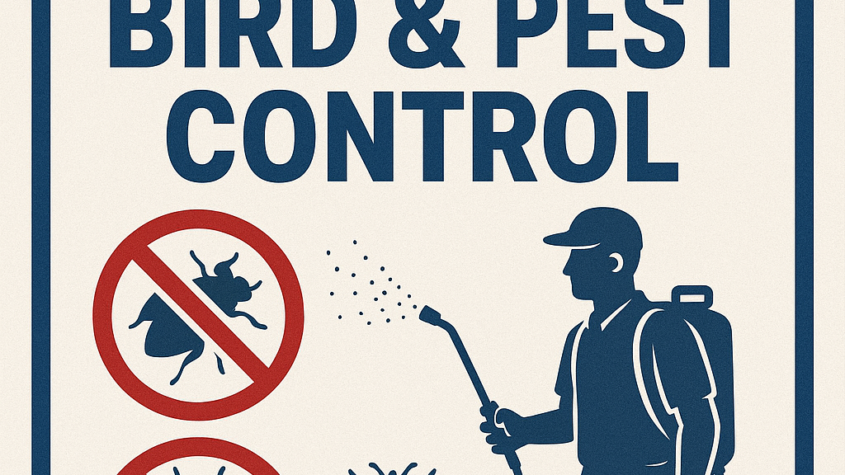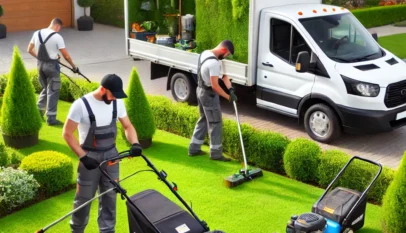
Residential pest control services Vancouver are essential for maintaining a safe and comfortable living environment. These services effectively address the pest problems that can disrupt households, preventing damage and health risks associated with infestations. With a range of options available, homeowners can find tailored solutions to fit their specific needs.
The natural abundance of greenery in Vancouver can attract various pests, making effective pest management crucial. Residents must stay informed about the practices that can help protect their homes, as well as the professional services available to assist them. Investing in regular pest control not only safeguards property but also enhances the overall quality of life.
Choosing the right pest control service involves understanding the types of pests common in the area and the treatments that effectively eliminate them. Homeowners can benefit from professional expertise in identifying the source of infestations and implementing preventive measures. This proactive approach ensures lasting results and peace of mind for families in the region.
Assessment and Planning for Pest Control
Effective pest control begins with a thorough assessment and strategic planning. Identifying the specific pests present in a home is crucial for developing a tailored approach. Timely intervention can prevent infestations from growing and becoming more difficult to manage.
Identifying Common Household Pests in Vancouver
Vancouver homeowners face a variety of pests throughout the year. Common household pests include ants, cockroaches, spiders, and rodents.
- Ants: Particularly active during warmer months, they often invade kitchens in search of food.
- Cockroaches: These pests thrive in warm, humid environments, frequently found in kitchens and bathrooms.
- Spiders: While many are harmless, some, like the black widow, can pose health risks.
- Rodents: Rats and mice tend to seek shelter indoors during colder months, causing damage and health issues.
Identifying these pests early helps in creating a focused treatment plan. Knowledge of their seasonal activity can also aid in preventive measures.
Customized Pest Control Solutions
Tailored pest control solutions are key to effectively managing infestations. Each home presents unique challenges and requires specific strategies.
Services may include:
- Inspections: Thorough home evaluations to identify signs of pests.
- Treatment Options: Choice between chemical treatments, traps, or natural deterrents based on the pest type.
- Prevention Plans: Recommendations for sealing entry points, reducing clutter, and maintaining cleanliness to deter pests.
Customized solutions not only address current infestations but also help prevent future occurrences, ensuring the long-term safety of the home.
Importance of Timely Intervention
Timely intervention is critical in pest control. Ignoring early signs of pest activity can lead to larger infestations, which complicate eradication efforts.
Consequences of delayed action include:
- Health Risks: Many pests carry diseases or allergens, potentially impacting family health.
- Structural Damage: Rodents and termites can cause significant damage to the home’s infrastructure.
- Increased Costs: Larger infestations may require more extensive treatments, leading to higher expenses.
Addressing pest issues promptly not only enhances home safety but also minimizes costs and protects property value.
Execution and Post-Treatment
Effective execution of pest control services involves utilizing advanced methods during treatment, followed by essential post-treatment strategies. The focus is on ensuring safety while promoting long-term prevention.
Advanced Treatment Methods
Various techniques are employed in residential pest control. Integrated Pest Management (IPM) focuses on prevention and monitoring, using minimal chemical intervention. This includes habitat modification, biological control, and targeted pesticide application.
- Boric Acid: An effective option for cockroaches and ants, it disrupts their digestive systems.
- Diatomaceous Earth: A natural, non-toxic option that dehydrates insects upon contact.
- Traps: Sticky traps and bait stations help monitor and reduce pest populations without chemicals.
Utilizing these methods allows for efficient pest elimination while minimizing environmental impact.
Safety Measures and Eco-Friendly Practices
Safety is paramount in pest control. Technicians follow strict guidelines to protect residents and pets during treatments.
- Protective Gear: Gloves, masks, and goggles are worn to minimize exposure.
- Chemical Safety: Only EPA-approved products are used, ensuring safety and effectiveness.
- Ventilation: Affected areas are ventilated post-treatment to disperse any residual chemicals.
Eco-friendly practices include utilizing organic products and emphasizing preventive measures, which contribute to a sustainable living environment.
Long-Term Prevention Strategies
Post-treatment, long-term strategies are critical for maintaining a pest-free environment. Ongoing monitoring and maintenance reduce the likelihood of infestations.
- Regular Inspections: Scheduling periodic checks helps identify potential issues early.
- Exclusion Techniques: Sealing cracks, gaps, and maintaining landscaping dissuades entry.
- Public Education: Sharing knowledge about pest behavior and hygiene practices empowers homeowners to take proactive steps.
Implementing these strategies ensures that residents remain informed and engaged in maintaining their space.
Rent Mini Excavator Near Me: Your Guide to Affordable Options and Local Availability
Renting a mini excavator can be a game changer for small construction projects, landscapin…









